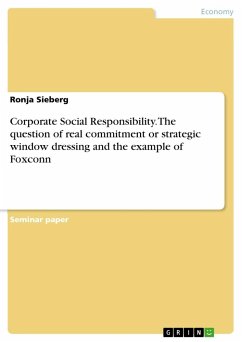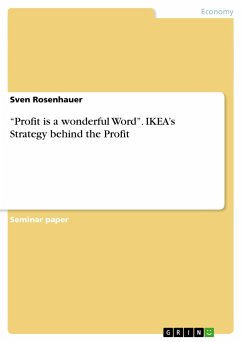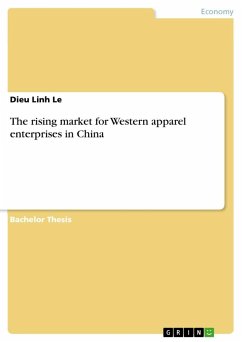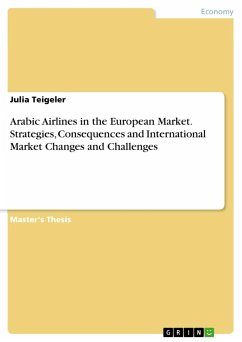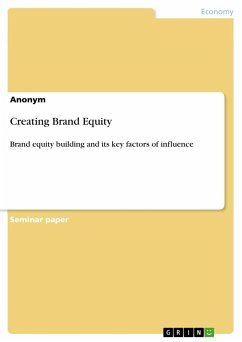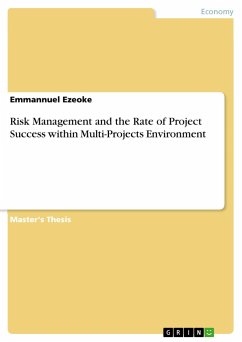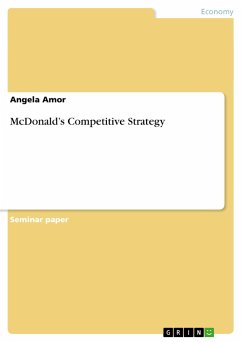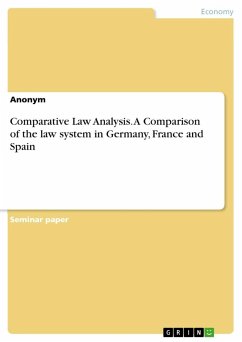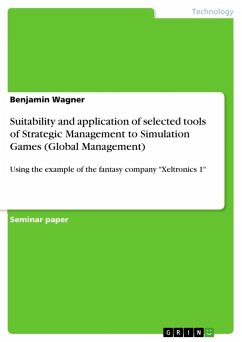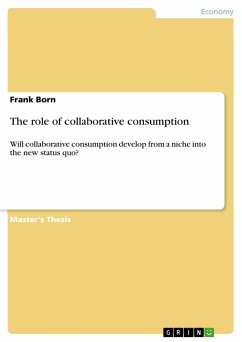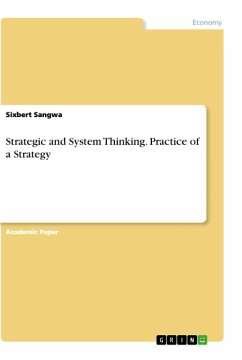
Strategic and System Thinking. Practice of a Strategy

PAYBACK Punkte
0 °P sammeln!
Academic Paper from the year 2017 in the subject Business economics - Miscellaneous, grade: 80, University of South Wales (Business School), course: Strategic Systems Thinking, Tools and Techniques, language: English, abstract: This essay serves as a critical appraise of the statement: "Systems thinking essentially seeks to understand phenomena as a whole formed by the interaction of parts" in relation to changing ideas of strategic thinking. It explains how this statement exists within the author's business approach to strategic management. The key themes addressed consist of an analysis of a...
Academic Paper from the year 2017 in the subject Business economics - Miscellaneous, grade: 80, University of South Wales (Business School), course: Strategic Systems Thinking, Tools and Techniques, language: English, abstract: This essay serves as a critical appraise of the statement: "Systems thinking essentially seeks to understand phenomena as a whole formed by the interaction of parts" in relation to changing ideas of strategic thinking. It explains how this statement exists within the author's business approach to strategic management. The key themes addressed consist of an analysis of approaches to strategic thinking, systems thinking, complexity perspective - especially the new ways of thinking about strategy, - complex adaptive systems - especially 'Modelling Complexity', and 'The Practice Perspective'.Today's business environment is complex, dynamic, multi-faceted and the environment has a far- reaching impact. As for other organizations, the author's company's environment is a combination of several factors that surround and affect it. Therefore, the management of such environment requires managers to carry out a careful analysis of the entire environment to have a clear understanding on how to position the firm in the industry based on fitting the strategy to the current business environment.The implication is that business managers should scan both the internal and external environment to adopt /develop strategies that they think will make their businesses successful. One of the biggest breakthroughs in how we understand and guide change in our organizations is systems theory and systems thinking. System thinking and strategic thinking are two interrelated terms that deal with examining patterns and lead to decision-making and the planning for execution at the organizational level.To understand how both strategic and system thinking are used in organizations, it will be clearly defined what systems are. To be able to evaluate strategic systemthinking and systems tools in an organization, both strategies and systems need to be explicitly defined. This will also lead to an analysis of the complexity of organizational system.




